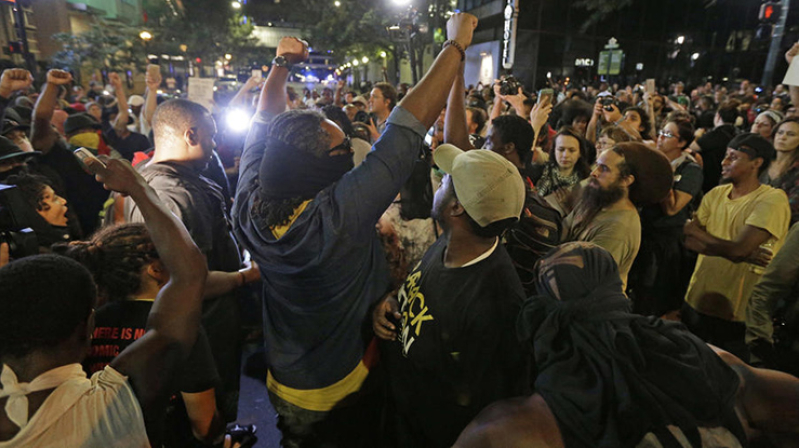
President of the Southern Baptist Convention's Ethics & Religious Liberty Commission, Russell Moore has condemned white supremacy as "devilish" and urged churches across the nation to stand up and "call it what it is."
In an op-ed published ahead of planned white supremacist rallies in Middle Tennessee, Moore said that many are asking how the church will respond to such "vile displays of bigotry intended to induce fear and stir up hatred."
Moore pointed out that after the violence seen in Charlottesville, Virginia in August, he "argued that it was of utmost importance for the church to speak, bringing a word of moral witness against these noxious displays of white supremacy and racial demagoguery."
"And many have," he said. "The truth, though, is that the church must oppose this by, first, knowing that it will not go away on its own. We should also recognize where this comes from. White supremacy is not just backward but devilish. And it thrives, in part, due to the fact that people lacking a sense of transcendent belonging are clinging to the idolatries of "blood and soil."
To combat this, it's important for the church to call white supremacy what it is: antithetical to the gospel.
"Racism does what as a Christian I believe the devil exists to do: to kill and to destroy and to exalt the idolatry of self," he explained. "If we cannot call this what it is, we will sow in cowardice what we will reap in violence."
As citizens of the U.S., we must "work to address structural and systemic inequalities that hinder full participation in the American promise by people of color," Moore said.
"American of many different religions, and of no religion at all, should stand together on at least this: that all men are created equal, and endowed by their Creator with certain unalienable rights."
That, Moore said, "should be not just recited, but ensured," as white supremacy is "too often a part of the American past and the American present, but should have no place in the American future."
Churches, then, must live out the unity of the gospel with Christians, whatever their color, "in shaping and forming one another's consciences."
"This means congregations must know one another as brothers and sisters, and learn not just to love one another but to listen to one another," he said. "Our churches should point us away from carnal divisions and toward what Martin Luther King, Jr., called the 'beloved community' and toward what our Lord Jesus himself called 'the kingdom of God.'"
While many things divide this country, Moore emphasized that the church "should be a signpost for what it means for people to be united not by the blood of their ancestors but by the blood of their Savior."
Following the Charlottesville rally, which saw the death of one young woman, Moore tweeted that "the so-called alt-right white-supremacist ideologies are anti-Christ and satanic to the core."
"'Blood and soil' = the idolatry of the flesh fueled by the dark spirit of the age. The wrath of God is revealed from heaven against such," he wrote. "I am grieved to the core to think that this is the United States of America I am watching on live television right now."
Jack Graham, a Texas megachurch pastor who serves on President Donald Trump's evangelical advisory committee, wrote that "white supremacy and its movements are evil to the core and are to be condemned."
Franklin Graham, the son of evangelist Billy Graham and the head of Samaritan's Purse, criticized those blaming Trump for the violence and said that ultimately, it "boils down to evil in people's hearts."
"Satan is behind it all," Graham wrote. "He wants division, he wants unrest, he wants violence and hatred. He's the enemy of peace and unity. I denounce bigotry and racism of every form, be it black, white or any other. My prayer is that our nation will come together. We are stronger together, and our answers lie in turning to God."






